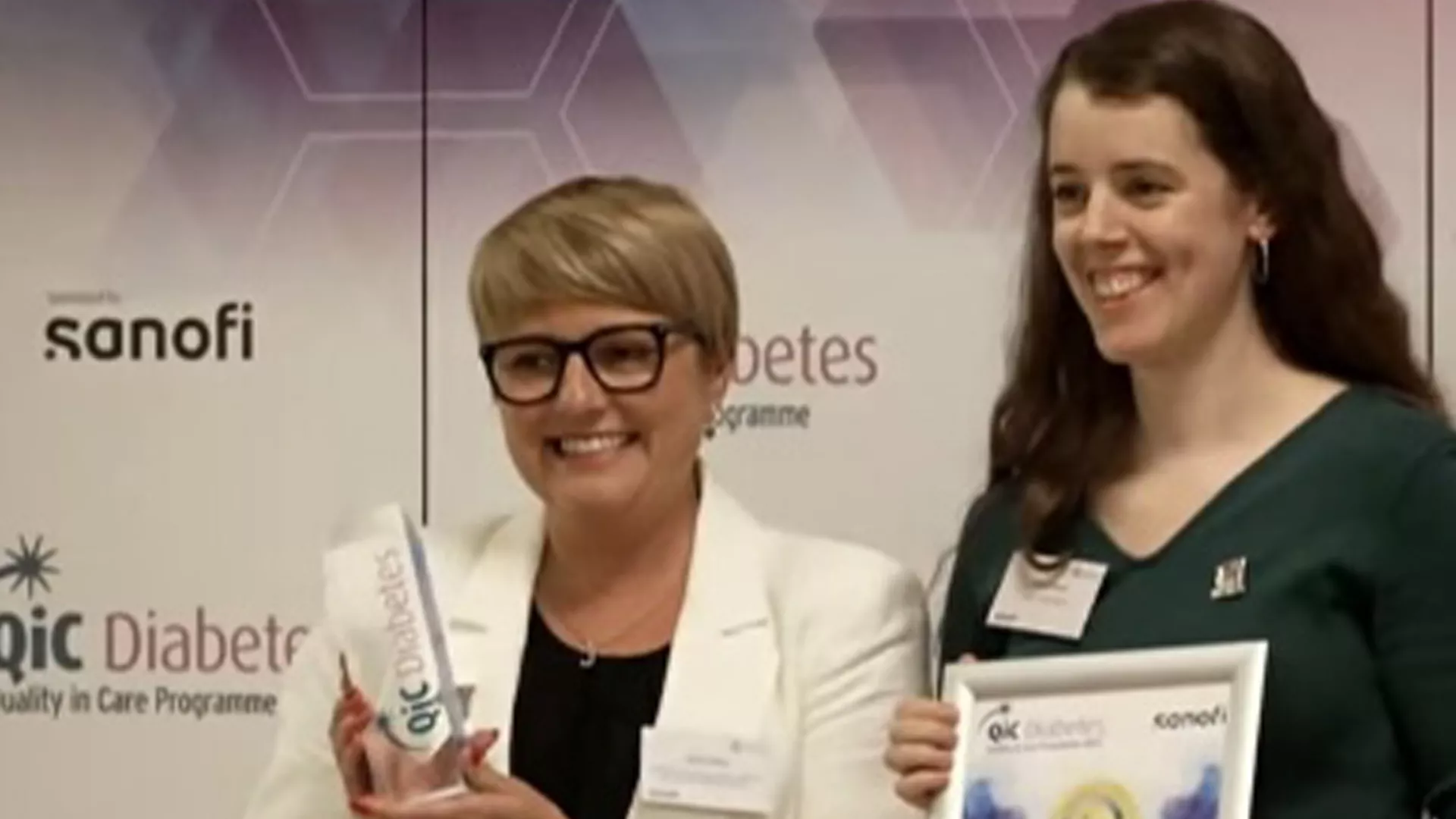
Diabetes technology has transformed the lives of more than 250 young people across the North East and North Cumbria (NENC) thanks to a recent project.
Hospital Trust IT equipment such as mobile phones and laptops have been donated to families who might otherwise have faced numerous barriers, so that they can get on board with diabetes technology.
This was supported by the NHS England Children’s Transformation Programme’s funding for Diabetes Technology Inequalities.
Project lead Jenny Foster, Network Manager Children and Young People’s North East and North Cumbria (NENC) Diabetes Network, explained that all regions were given the opportunity to apply for funding designed to level up access to diabetes technology.
This would be aimed particularly at young people living in deprivation or from ethnic minority backgrounds.
“We discussed the opportunity of funding with our clinical teams and identified that the biggest barrier to accessing diabetes tech across NENC was families living in low-income households who needed a mobile phone in order to make the diabetes tech work and get the full functionality from it.”
A team was built using the allocated funding, bringing in external expertise from Town & Community who had delivered similar projects, as well as Type 1 Kidz.
Type 1 Kidz are a patient support group providing events support to families living with diabetes across the North East and Cumbria.
An audit was completed on what could be achieved during their 12 month pilot. It was estimated that out of 1,855 young people in their footprint, they could support 400 families.
The project team also partnered with Gateshead Health NHS Foundation Trust who continued to donate phone and laptops no longer in use. After refurbishment and certification, the equipment was made available to the project team and a referral process began.
“What I think is really important is that we offer access to this project to everybody; there are no criteria, you don’t have to live in a certain decile or a certain postcode, and there’s no means testing.
“We did that purposefully based on the outcomes of poverty proofing training that had previously been delivered to HCPs across the region which identified that people living in poverty are more likely to access provision and interventions if they are offered to everyone.
“We are now finding that up to 70% of families that are accessing a mobile phone or laptop through the project live in the top 3 deciles in the IMD scoring system, so we are reaching the families who need it.”
The project hasn’t been without its problems, however, even if overcoming some meant taking a very direct route.
“The level of phone required for the management of diabetes technology is quite high and a problem we stumbled upon was that there was a nuance in some of the phones which meant they weren’t compatible with some of the commonly requested diabetes devices.
“To solve it, we went directly to the diabetes device manufacturer and asked their Research and Development team to investigate ultimately resulting in them making the phones compatible.”
While funding for the project runs until March, Jenny has been conscious of the need to identify processes that are potentially cost neutral or secure alternative funding solutions.
“The fact is, the 255 pieces of equipment which have been given to families up to the end of December 2023, have come from a single hospital which is not sustainable. The mission we are now on is to bring about a change in process and ask for an NHSE mandate for all hospitals to assess their IT equipment for potential refurbishment and patient use.
“For us, across NENC, the focus is now on identifying other donation sites, we are proving concept, processes and value, our HCPs are referring families into the project regularly and the feedback received from families has been incredible.
“Ultimately, we’re giving families access to life-changing equipment that they previously weren’t able to access and to me, that’s the key.”
For one family, the benefits have been immense, commenting:
“We are so grateful to the team who have enabled both of our young sons (2 and 4) to use the latest technologies to manage their diabetes.
"We would struggle to afford for such young children to have a mobile phone and are so very grateful that this has not been a barrier to them using Omnipod5 and Dexcom. The move to this has allowed us to sleep at night.”
A further testimonial from a healthcare professional bears out the value of the project:
“The patient really benefitted and then started to enquire about further technology (pumps), thankfully the phone supplied was also compatible with the Dexcom G6 which meant she could then access the Omnipod 5 pump she was interested in.
“This patient has improved so much and is really appreciative of being able to access technology that wouldn’t have previously been available to her.”
Clare Howarth, Head of the North of England at Diabetes UK, said the project had numerous benefits:
“We should take whatever opportunities we can to increase the amount of compatible tech available, and a project such as this ticks a lot of boxes for us. It means that the tech required to access the monitoring equipment is available to more people, while recycling items such as these phones is also helpful from a sustainability point of view.”

